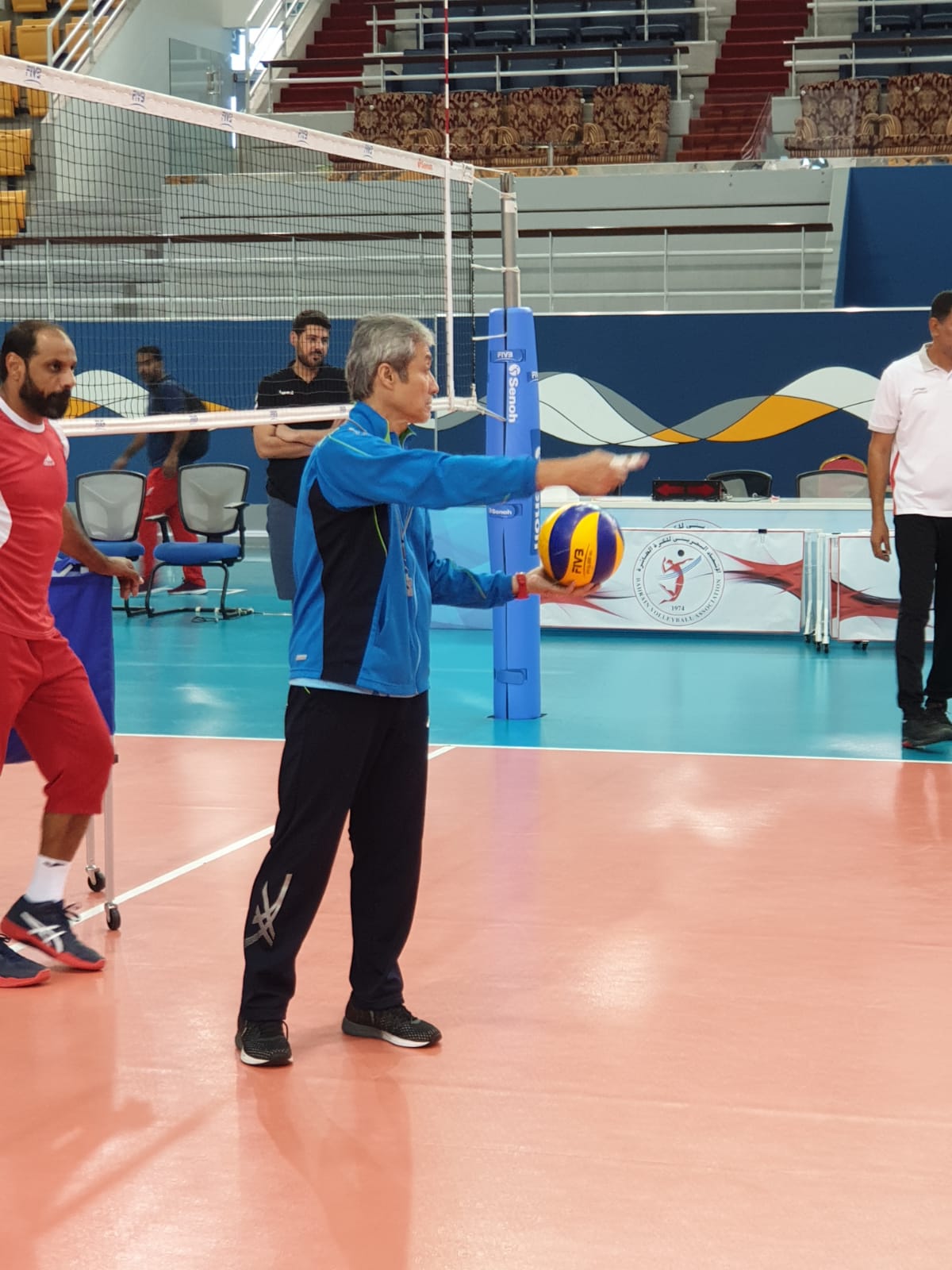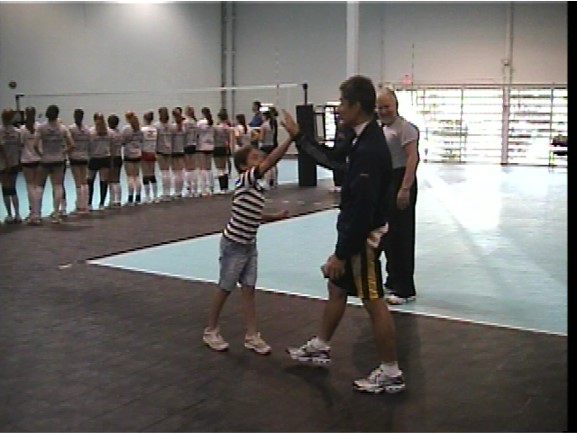Atsushi A. Katoh: The coach has two roles - to be a Development Coach and a Game Manager
The CEV Development flagship event - the 2024 #CEVCoachesConvention, is just around the corner (13-15 September, Sofia, Bulgaria), and as young coaches and physical education teachers from across the continent are looking forward to a wonderful and useful experience that will help them shape their coaching strategies, we are getting to know better the three high-profile speakers that will delve into coaches secrets for Volleyball at grassroot level.
Kåre Mol, Atsushi Andre Katoh and Ranko Rajović are the lecturers at the 2024 edition of the event, bringing us three different perspectives on coaching youngsters.
After talking to Kåre Mol, who shared with us more on coaching from the Scandinavian perspective, today, we “head to” Japan, where we Atsushi A. Katoh presents his philosophy on working with underage athletes.
Read on and stay tuned for the last interview with Mr. Rajovic.

His background
Katoh’s background and coaching experience includes working with the youngest lovers of Volleyball - kids U6, Children U8, U10 and U12. He has also coaches groups of U16, U18 (both girls and boys), and U23. Katoh experience includes working with senior players in both men’s and women’s teams.
The Japanese expert has been developing his career both at home, on a domestic level, and overseas, including working in the USA, China, Hong Kong, Thailand, Philippines, Vietnam, Indonesia, Sri Lanka, Bahrain, Hungary, Tunisia and Sudan.
Katoh’s understanding of Volleyball focuses on the game not only for competitive purposes, but also for recreational and relaxational ones in order to develop players personally and teams collectively.
The beginning of his coaching career
The Volleyball specialist says that, at the time he was a kid, Baseball was the popular sport around him. However, the 1972 Olympic Games in Munich inspired him, and he took up on Volleyball. He quickly realised that coaching, and not playing, was the right path for him:
“I wasn’t good as a player, I am short. By the time I was training, the libero position wasn’t introduced yet, but I had this big passion for Volleyball. And I wanted to help to develop the good players somehow, so this is how I started with coaching.”
On the role of the coach
Katoh says that the coach has two functions:
“The first one is the development of a player or of a team. The second one is to be a Game Manager - to control the game, to prepare it, always with the main focus on winning it. Cf. Their limitation is so ‘fuzzy’ and sometimes mixed. We are confusing these concepts. I, personally, have been much more a development coach. And I know that almost all the coaches worry about this part of the practice."
Atsushi A. Katoh"A coach must be adaptive, and go from easy to hard and never copy the others’."
Volleyball coach
The Japanese Volleyball school system
Being a different system than the European one, Katoh will bring to the #CEVCoachesConvention the Japanese Volleyball school perspective.
“I am formed by the Japanese Volleyball. The coaches have players that need to develop in a timeframe of three years periods as they change from junior high school, to high school, to university. What is very important to the Japanese coaches is to develop the technical skills of the players.”
His mission and coaching policy
According to Katoh’s vision, the coach should be adaptive to the players and everything should be up to the situation, depending on the Game Manager. Coaches and players should meet on the Volleyball court, not in the meeting room, we must try to integrate both on the desk and on the court easily to adopt a common goal for players and team building.
Atsushi A. Katoh"The coach should always inspire the players and give them motivation through daily work."
Volleyball coach

On developing Volleyball at grassroot level
When it comes to these age groups, things should be done “from easy to hard”, Andre says. Rules might be changed slightly, the ball has to be adapted from hard to soft. What’s of utmost importance is also that the family of the young athlete is somehow included in the whole process - involving friends and parents in the gym at his lecture. He has always tried to give all the participant the chance to have fun and to inspire them to play together.
Furthermore, this is the period when to develop coordination between nerve system and muscles combined with functional trainings. Therefore, depending on the level of the kid, there must be “hitting ground” exercises for beginners, “bounced ball” for middle, and “fly or line drive” for advanced.
His goal
All players are on the court to play at each coaching session, Katoh says.
Atsushi A. Katoh"Usually, you would have six good players, or 12 good players who are listed for official games. But I want other players to play as well, to take part. They are all my players."
Volleyball coach
"During the training session, I need all the players. I want to give them drills, to help them develop their skills. Who knows? They might get inspired, become better, and another coach might choose them. This way, they still have a chance.”
Let’s have fun!
Counting on wide experience of working with small kids U6, Katoh mentions that, to him, the Volleyball game at this level, is about fun.
“I have coached kids from kindergarten levels. We play with balloons, it is a nice experience. It becomes a different game, but it is a basis for the real one. The focus is on the fun, to create games that entertain - 1 to 1, 2 to 2, 3 to 3. It has a functional effect as it helps to develop the skill as well. And this concept can lead to reaching a higher level of players and team - this I have got to know through my wide range of coaching experience!”